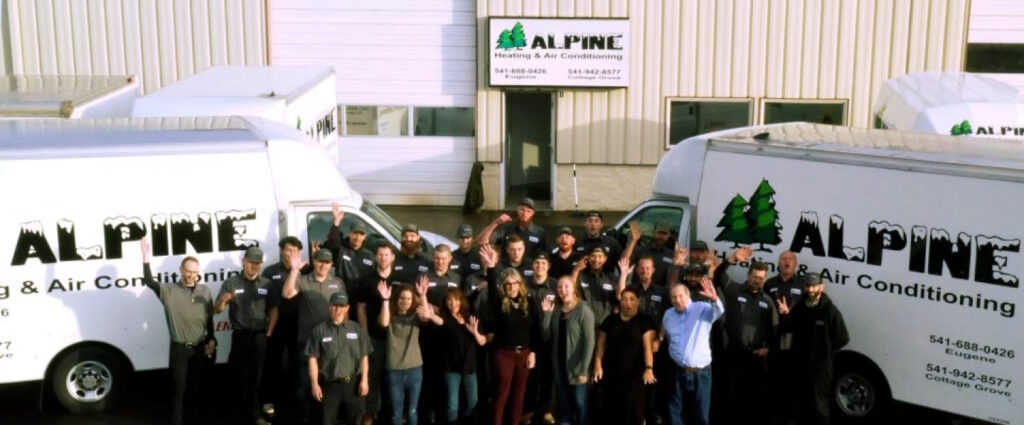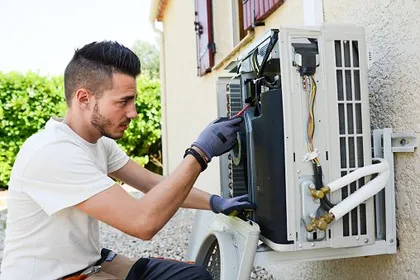Beat the Heat: Your Ultimate Guide to Air Conditioning Installation in Eugene Oregon
Summer in Eugene can turn your cozy home into a sweltering oven, and I learned this the hard way last July when my old window unit sputtered out during a 95-degree scorcher. Sweat-soaked and desperate, I dove headfirst into researching air conditioning installation in Eugene determined to find a system that would keep my family cool without breaking the bank. What I discovered was a world of options—ductless mini-splits, central AC, heat pumps—and a local scene brimming with skilled contractors ready to transform sticky summers into a breeze. This guide unpacks everything you need to know about installing an AC in Eugene, from choosing the right system to navigating costs, rebates, and the best local pros to call.
Key Takeaways:
- Diverse AC Options: Eugene homes can opt for central air conditioning, ductless mini-splits, or heat pumps, each suited to different home sizes and layouts.
- Cost Considerations: Installation costs range from $2,851 to $3,479, with energy-efficient systems offering long-term savings.
- Local Expertise: Contractors like Comfort Flow Heating, Alpine Heating, and Jco Heating dominate Eugene’s HVAC scene with decades of experience.
- Rebates and Incentives: EWEB and federal programs provide financial perks for energy-efficient installations.
- Maintenance Matters: Annual tune-ups extend system life and maintain indoor air quality.
Why Eugene Needs Air Conditioning Now More Than Ever
Eugene’s climate is changing. Gone are the days when summer meant mild 70-degree afternoons. Recent heat waves have pushed temperatures into the triple digits, making air conditioning a necessity, not a luxury. My neighbor, Sarah, told me how her family slept in the basement last summer to escape the heat—until they installed a ductless mini-split that changed everything. Local contractors report a surge in demand for AC installation, with companies like Comfort Flow Heating noting a 30% uptick in inquiries over the past five years.The Climate Shift in EugeneEugene’s summers are getting hotter and longer, with the National Weather Service recording an average of 10 days above 90°F annually, up from just 3 a decade ago. This shift drives the need for reliable cooling systems. Whether you’re in a historic bungalow in the Whiteaker neighborhood or a modern build in South Eugene, your home’s comfort hinges on choosing the right AC system.
|
Eugene Summer Stats
|
Details
|
|---|---|
|
Average High Temp (July)
|
82°F (rising to 95°F+ during heat waves)
|
|
Days Above 90°F (Annual)
|
~10 days (and increasing)
|
|
Humidity Levels
|
Moderate (30-50%), amplifying heat discomfort
|
Choosing the Right AC System for Your Eugene Home
Picking an air conditioning system isn’t like choosing a new couch—it’s a decision that impacts your wallet, comfort, and energy bills for years. Eugene’s diverse housing stock, from compact apartments to sprawling ranch-style homes, demands tailored solutions. Let’s break down the main options.Central Air Conditioning: The Whole-House SolutionCentral air conditioning is the gold standard for larger homes with existing ductwork. It uses a single outdoor unit to cool air, which is then distributed through ducts to every room. I visited a friend’s 2,000-square-foot home in Bethel-Danebo, where a central AC kept every corner crisp, even during a 98°F day. The catch? Installation can be pricey, ranging from $3,000 to $7,000, depending on home size and system efficiency.
- Pros: Uniform cooling, ideal for large homes, integrates with existing furnaces.
- Cons: High upfront cost, requires ductwork, less flexible for zoning.
For a deep dive into how central AC works, check out Air Conditioning Installation in Eugene, Oregon on WikiHow.Ductless Mini-Splits: Flexible and EfficientFor homes without ducts—like many older Eugene properties—ductless mini-splits are a game-changer. These systems use an outdoor compressor and indoor wall units to cool specific zones. My cousin in Friendly Area installed a two-zone mini-split for $4,500, and now he cools his living room and bedroom without wasting energy on unused spaces. Local contractor Jco Heating reports that 40% of their installations in Eugene are ductless systems.
- Pros: Energy-efficient, zonal cooling, no ductwork needed.
- Cons: Higher initial cost per unit, visible indoor units.
Heat Pumps: Cooling and Heating in One
Heat pumps are Eugene’s darling for their dual role: cooling in summer, heating in winter. They’re insanely efficient, slashing energy bills by up to 50% compared to traditional furnaces. A local Reddit thread raved about Alpine Heating installing a heat pump for a 1,500-square-foot home for $5,200, with EWEB rebates covering $1,000. Learn more about heat pumps at https://www.energy.gov/energysaver/heat-pump-systems.
|
AC System Comparison
|
Central AC
|
Ductless Mini-Split
|
Heat Pump
|
|---|---|---|---|
|
Cost (Installed)
|
$3,000-$7,000
|
$2,500-$6,000 per zone
|
$4,000-$8,000
|
|
Best For
|
Large homes with ducts
|
Homes without ducts
|
Year-round comfort
|
|
Energy Efficiency
|
Moderate
|
High
|
Very High
|
|
Installation Time
|
1-2 days
|
1 day per zone
|
1-2 days
|
Navigating Installation Costs in Eugene
Let’s talk money. Air conditioning installation in Eugene typically costs between $2,851 and $3,479, according to Homeyou.com. But costs vary wildly based on system type, home size, and contractor. A window unit might run you $150-$300 to install, while a full central AC system could hit $7,000 for a 2,500-square-foot home. My buddy Mike got a quote from Comfort Flow Heating for a ductless system at $3,800, but he shaved $500 off with a federal tax credit.
Factors Driving Costs
- Home Size: Bigger homes need more powerful systems, jacking up costs.
- System Type: Ductless systems are cheaper for small spaces but scale up with multiple zones.
- Labor Rates: Eugene’s HVAC contractors charge $75-$150/hour, with top firms like Priority One on the higher end.
- Rebates: EWEB offers up to $2,000 for energy-efficient systems, and federal credits can add another $300-$2,000.
Hidden Costs to Watch
Don’t get blindsided by extras. Ductwork repairs can add $1,000-$3,000 if your existing system is outdated. Electrical upgrades, like a new panel for high-powered units, might cost $500-$2,000. I learned this when my old wiring couldn’t handle a new heat pump, forcing a $600 upgrade.
Top HVAC Contractors in Eugene.
Eugene’s HVAC scene is packed with heavy hitters, but not all are created equal. After scouring Yelp, Reddit, and local reviews, here are the standouts for air conditioning installation.
Comfort Flow Heating:
The Veteran ChoiceWith over 60 years in the game, Comfort Flow Heating is a Eugene institution. They’ve installed systems for over 50,000 homes and businesses, from ductless mini-splits to commercial rooftop units. A Yelp reviewer praised their quick response when his AC died mid-heatwave, with a technician arriving in two hours. They’re also NATE-certified, ensuring top-tier expertise.
Alpine Heating & Air Conditioning:
The Reliable Up-and-Comer Alpine Heating has 15 years of experience and a knack for energy-efficient installs. A Reddit user in r/Eugene called their heat pump installation “a steal” at $4,800 after rebates. They offer 24/7 emergency service, perfect for those surprise summer breakdowns. Check their offerings at https://alpineheating.org.

Jco Heating A/C Electrical:
The Local GemJco Heating has been cooling Eugene since 2002, with a focus on ductless systems and heat pumps. Their Angie’s List reviews highlight fast service and fair pricing, with one customer saving $1,000 compared to competitors’ bids. They’re a solid pick for smaller homes or apartments.
|
Top Eugene HVAC Contractors
|
Experience
|
Specialties
|
Customer Rating (Yelp/Angi)
|
|---|---|---|---|
|
Comfort Flow Heating
|
60+ years
|
Central AC, Ductless, Commercial
|
4.5/5 (Yelp)
|
|
Alpine Heating & Air
|
15 years
|
Heat Pumps, Emergency Service
|
4.7/5 (Angi)
|
|
Jco Heating A/C Electrical
|
20 years
|
Ductless, Residential
|
4.6/5 (Angi)
|
Maximizing Energy Efficiency and Rebates
Eugene’s eco-conscious vibe means energy efficiency is king. Heat pumps and high-SEER (Seasonal Energy Efficiency Ratio) AC units can cut your energy bills by 30-50%. EWEB’s rebates, like $1,000-$2,000 for heat pumps, make these systems even sweeter. I snagged a $1,200 rebate on my mini-split last year, and my electric bill dropped $50 a month.Federal and Local Incentives
- EWEB Rebates: Up to $2,000 for energy-efficient heat pumps or AC units.
- Federal Tax Credits: $300-$2,000 for qualifying systems under the Inflation Reduction Act.
- Utility Programs: Check with NW Natural for additional gas furnace or hybrid system incentives.
Maintenance Tips to Keep Your AC Purring
A new AC is like a new car—it needs regular care to stay in top shape. Annual maintenance can extend your system’s life by 5-10 years and prevent costly breakdowns. My first summer with a new ductless mini-split, I skipped maintenance and ended up with a $200 repair bill for a clogged filter. Lesson learned.
Essential Maintenance Tasks
- Filter Cleaning: Swap or clean filters every 1-3 months to maintain indoor air quality.
- Coil Cleaning: Dirty coils reduce efficiency; schedule annual pro cleanings ($100-$200).
- Duct Inspections: Leaky ducts waste 20-30% of cooled air; seal them for max efficiency.
Frequently Asked Questions
How long does AC installation take in Eugene? Most installations, like central AC or heat pumps, take 1-2 days, while ductless mini-splits can be done in a day per zone, per Comfort Flow Heating.
What’s the best AC system for an older Eugene home? Ductless mini-splits are ideal for homes without ductwork, offering flexibility and efficiency, as noted by Jco Heating.
Are there financing options for AC installation? Yes, contractors like Alpine Heating offer 0% financing for 60 months on approved credit, and EWEB provides low-interest loans up to $10,000.
How do I know if my home needs ductwork upgrades? A contractor will inspect your ducts during the quote process; expect upgrades if they’re over 20 years old or leaking, costing $1,000-$3,000.
Can I install an AC myself? DIY is risky due to refrigerant handling, which requires EPA certification. Pros like Priority One ensure safe, efficient installs.

